Arch-braced rood beam
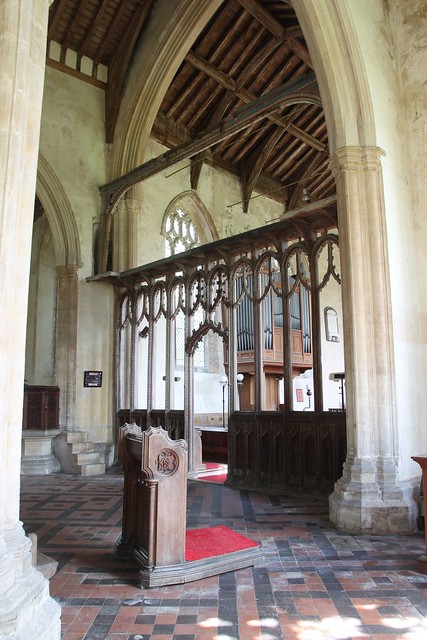
The church at Tunstead in Norfolk is a vast and mighty structure of the fourteenth and fifteenth century and it has a substantial Rood screen to match its scale. The screen has a painted dado with rather darkened figures of the saints and a polychromed superstructure, with boldly painted detailing,
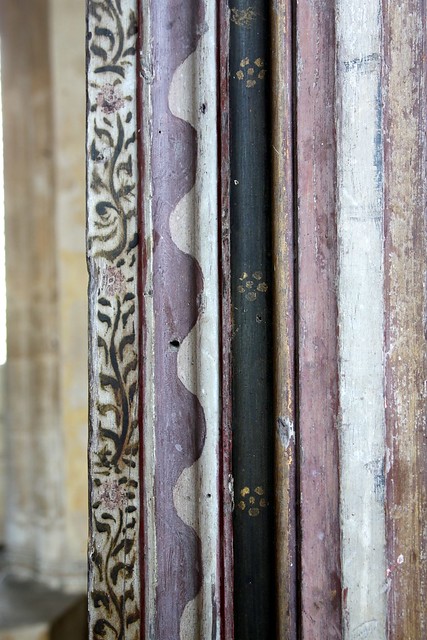
Above the light tracery of the screen proper, the floor of the Rood loft is still partly present, though the parapet of the loft has gone. The timber supports and superstructure of the loft floor remain, as the decorative coving that covered this has vanished. Thank goodness that this loft structure remains as it does, for it supports a structure that rarely remains even when screens do, the medieval Rood beam.
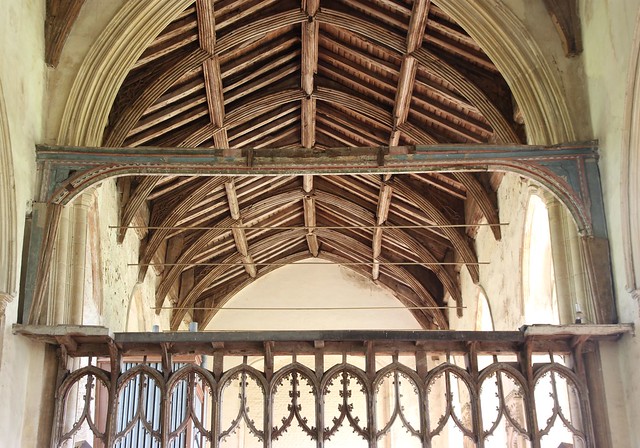
The beam is a substantial timber and sitting under the Chancel arch, it must have supported a gigantic, perhaps even lifesize Rood group. The Rood itself was probably attached to the beam directly and slotted into the central mortice that remains. The attendant figures of Mary and John were probably fixed into a secondary beam, that was placed in front of the cross. You will notice that there is a gap in the upper moulding of the rood beam where this secondary beam was positioned,
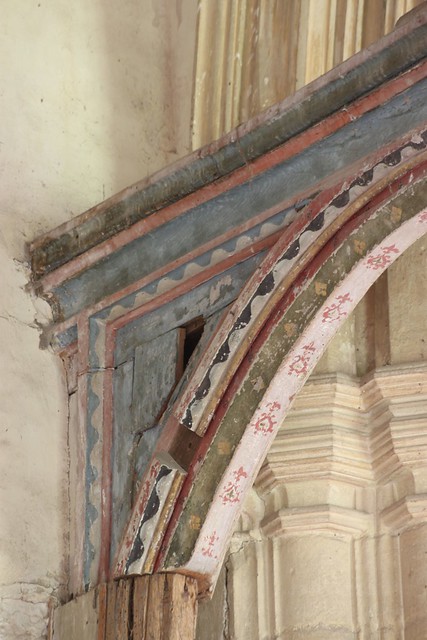
The structure that supports the Rood beam here is unusual. Generally rood beams were supported on corbels either side of the Chancel arch, or in the north and south walls of the Nave. Here the beam is supported on two upright posts with a pair of arch-braces to take the strain. The uprights are in turn directly supported by the timber structure of the screen below.
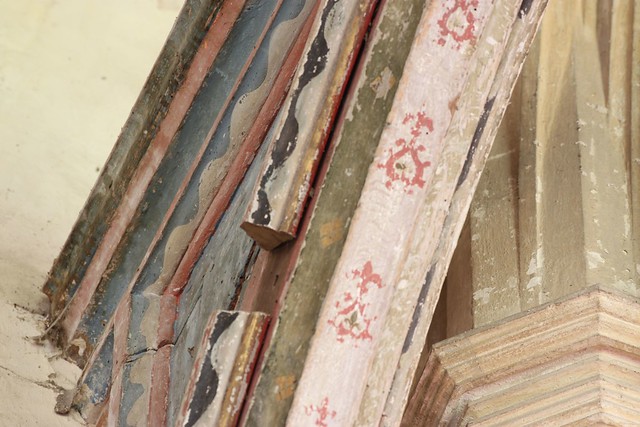
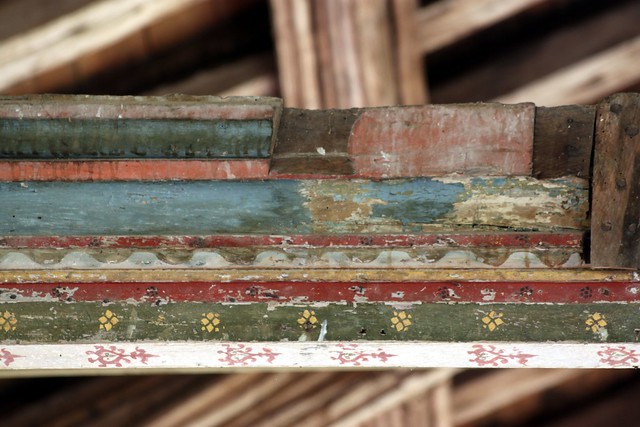
Extraordinarily the Rood beam retains most of its rich late medieval colouring. The usual combination of wavy line decoration, stencilled, gilt and hand-painted foliage.

Comments